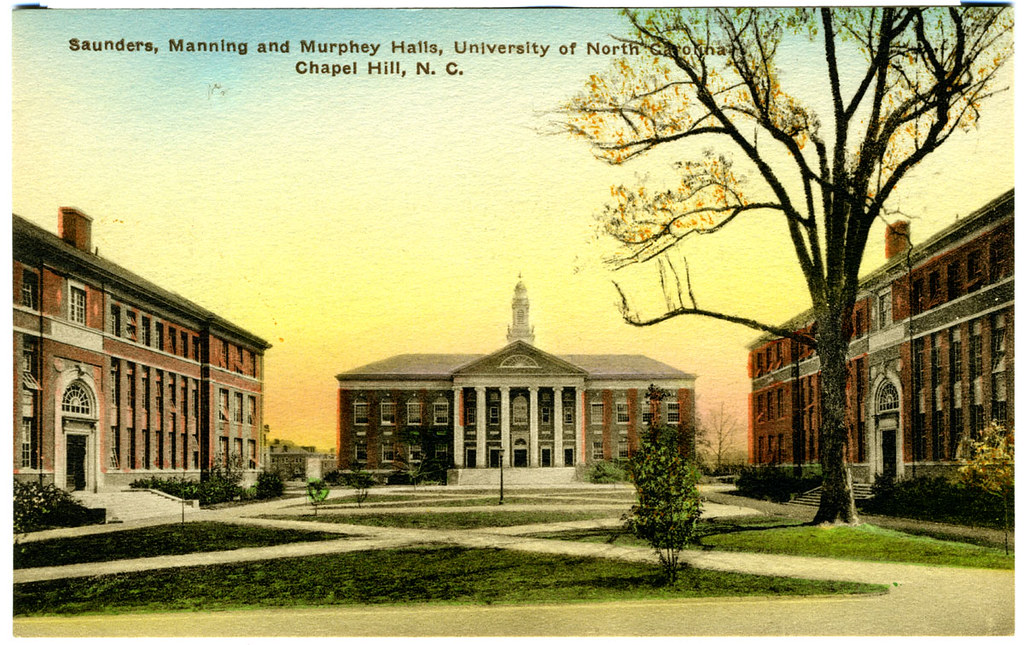Student-organization funding must be viewpoint-neutral, but UNC-Chapel Hill favors progressive clubs.
Student organizations play a major role in shaping a campus environment outside of the classroom. Students’ participation in athletics, activism, extra-curricular learning, events, and other activities is typically organized by student-run clubs that work to supplement formal academic instruction. Many such organizations are funded by their respective universities, which means that close scrutiny of potentially discriminatory funding practices is merited. Indeed, there are drawbacks to using mandatory fees to subsidize student organizations at all.
University of North Carolina System schools provide substantial funding to registered student organizations by allocating revenues collected through mandatory student fees. UNC-Chapel Hill states that its required student-organization fee “supports the growth of student organizations, and the mission of each unique group.” Funding for each such organization is determined by the student government after an application process. In the fall 2023 semester, UNC-Chapel Hill allocated more than $900,000 to its registered student organizations. NC State University, meanwhile, allocates over $250,000 per year to student organizations.
Because student organizations are financed through mandatory fees, universities are bound by a standard of viewpoint neutrality when distributing funds. Two Supreme Court decisions, Rosenberger v. University of Virginia and Board of Regents of the University of Wisconsin System v. Southworth, require, respectively, that funds must be distributed without regard to a student organization’s viewpoint and that students cannot be compelled to pay fees if funding criteria are not viewpoint-neutral.
UNC-Chapel Hill’s student code emphasizes the fact that funding allocations “may not have any relationship to the particular view of the group or activity” in question. However, its 2023 funding website states that organizations will be evaluated based on their “representation; vitality; specialization; diversity, equity, and inclusion; and sustainability.” While the university asserts that these criteria are “objective” and “viewpoint neutral,” a reasonable person might wonder how such nebulous and politically charged standards could possibly be objective. DEI in particular, a central tenet of the modern progressive political agenda, manifestly enables viewpoint-discriminatory practices if used as a tool for evaluating student-organization funding requests.
The predictable results of these slanted criteria are underscored by publicly available student-government appropriations metrics. Funding allocated for identity-based groups far exceeds the median appropriation for all student organizations that requested funding, which was $2,653 for fall 2023. The Muslim Student Association, for example, was awarded $10,060. One Africa and the Asian American Students Association were each granted more than $6,000. The “Latinx” organization Mi Pueblo was allocated $9,000. While students undeniably have the right to establish and participate in such clubs, it appears that DEI-centric funding criteria tend to benefit identity-based organizations.
Activist organizations such as Students for Justice in Palestine, Planned Parenthood Generation Action, and the Affirmative Action Coalition also receive thousands of dollars, collected through mandatory student fees. Again, vague funding criteria may lead the student government to skew funding toward these organizations, provided that they further vague progressive standards such as “representation” and “vitality.” University campuses are already hotbeds of political intolerance. Disproportionately allocating revenues from mandatory fees toward identity-based and activist organizations only subsidizes the culture of identity politics that plagues universities.
Students are well equipped to organize clubs, recruit students, plan and execute events, and manage club finances on their own. Accordingly, they need not rely on the distribution of revenues from mandatory fees to support their activities. Resourceful student-organization leaders are capable of conducting fundraising on and off campus and collecting dues from members to finance their operations. Enabling student governments to act as middlemen only redistributes students’ tuition dollars toward organizations that align with the university’s potentially viewpoint-discriminatory DEI, “representation,” and “sustainability” objectives.
Finally, delegating fundraising responsibilities to student organizations empowers students to choose which organizations receive their money, thus dissolving the institution’s power to discriminate by viewpoint. It enables students to pocket hundreds of dollars in mandatory fees, making an affordable college education more accessible to the public. Administrators and policymakers should consider making meaningful reforms to disempower discriminatory actors and to restore financial agency to their students.
Harrington Shaw is an intern at the James G. Martin Center for Academic Renewal and a senior studying economics and philosophy at UNC-Chapel Hill.
Originally published by The James G. Martin Center for Academic Renewal. Republished with permission.
For more School Reform News.
